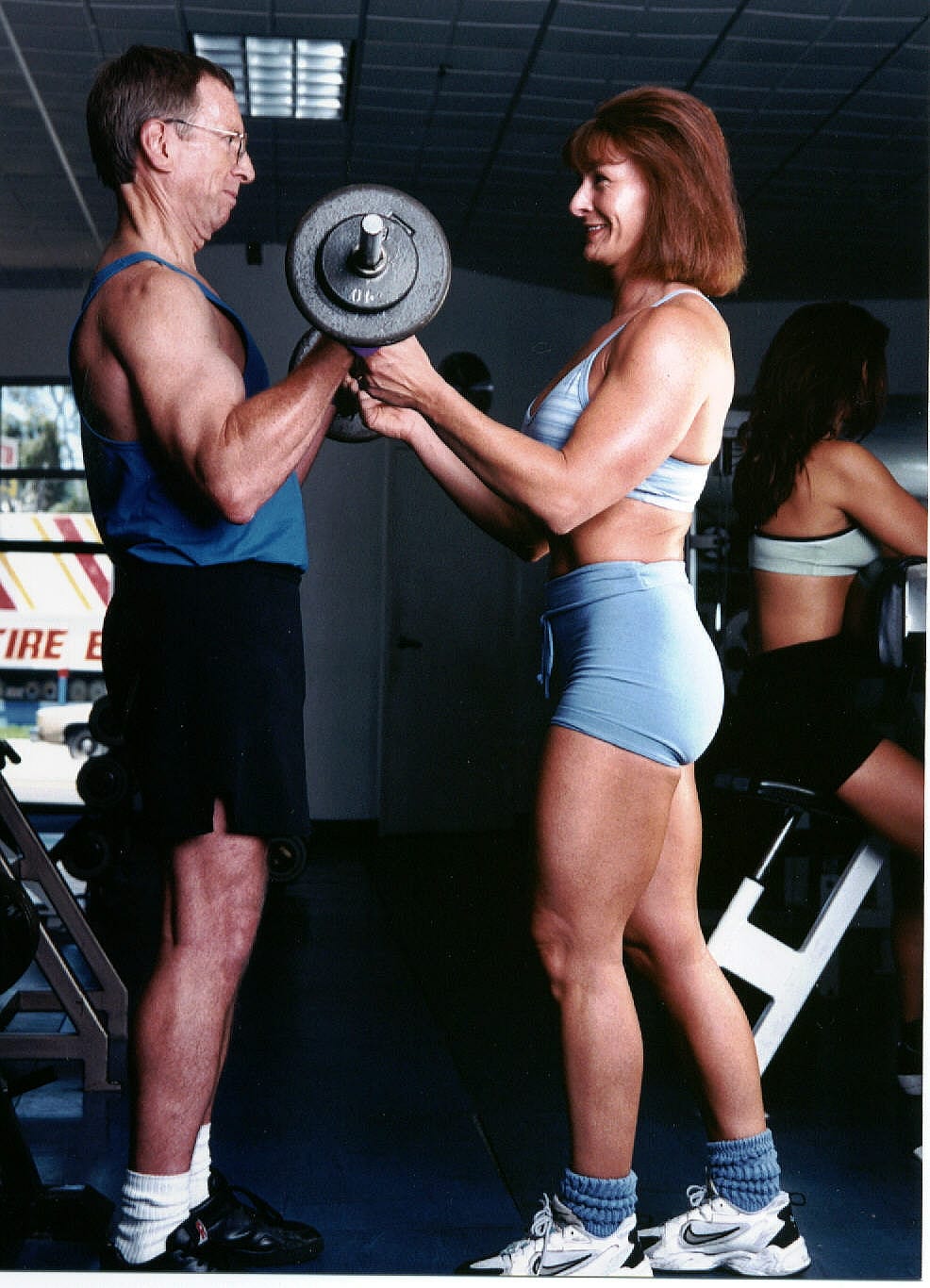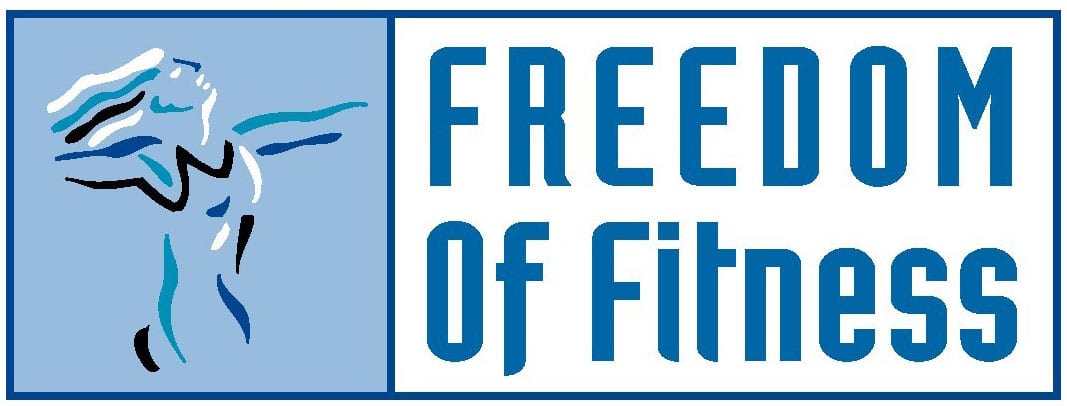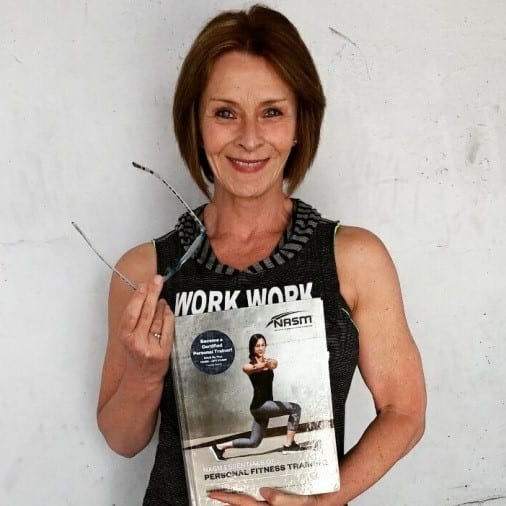
Personal trainers can help people reach their personal health and fitness goals, or they could be a big waste of time and money. If you are considering hiring a trainer, it can be difficult to pick the right one. Many gyms offer personal training services for their members (for an additional fee), and their high-pressure salespeople might try to convince you to buy a package. Other gyms have trainers that are independent contractors. However, before you sign on the dotted line, it’s important that you’re making the right decision, with the right person, to help you reach your goals.
If you lack the motivation to workout on your own, like variety but don’t know how to create your own program, or you have very specific training goals, you can benefit from hiring a personal trainer.
What Should I Look For in a Trainer?
One of the most important things to ask about is a trainer’s credentials. Your trainer should have a reputable certification and preferably, a degree in the exercise/fitness field. Organizations like IDEA, AFAA, ACE and NASM provide excellent information for educating personal trainers. However, a trainer who has a higher education, like a 15 month vocational college certification (Meuller College) or a 2 year city college fitness certification (Mesa College) is a better choice, as they have more education in the areas of kinesiology, anatomy and biomechanics.
Your trainer should have a current CPR/AED certification, as well. Don’t be afraid to ask to see a copy of all of their certification cards to make sure they are current.
How Should I Interview a Potential Trainer?
Remember that you are hiring this person to provide a service for you. Treat your first meeting like a job interview. Don’t be afraid to ask them questions about their training philosophy, what specific things they will do to help you reach your goals, and how they think they can be of service to you. Here are some questions to get you started:
- What kind of experience and credentials do you have?
- What kind of motivational techniques do you use to help your clients reach their goals?
- Knowing my specific fitness goals, what kind of workout plan will you develop to help me?
- How often will you change my workout routine?
At Freedom of Fitness, the first 30 minute consultation is FREE. I want to make sure that the potential client has an opportunity to ask questions, understand the financial agreement, but most of all, I want both of us to feel confident that we are a good match, at all levels.
Also ask about package details such as:
- What are your rates and what kind of packages do you offer? Typically, the fewer sessions you buy, the more each will cost. Also ask about payment options, whether a full payment is expected up front, per session, or as installments over time.
- What is your cancellation / refund policy? If something unexpected occurs, like illness or the client needs to relocate for work, can they get their money back for unused sessions?
- Do you offer multiple-client sessions? Group training usually costs less per person. If you can exercise with a few friends, you’ll all save money.
- If I buy a package, do I have a certain period of time to use it? Make sure the package won’t expire before you have a chance to use all of the sessions you paid for.
- What hours are you available to train me? If your trainer can’t commit to a schedule that works for you, then find another trainer who can.
- What kind of fitness assessments do you perform and how often? Fitness assessments like body fat testing, blood pressure screening, and strength, flexibility and endurance tests will help your trainer gauge your starting fitness level and design a safe exercise program.
What Should I Avoid?
Although there are many reputable trainers out there who know what they are doing, there are also those who don’t. Here are two common warning signs to look for that will tell you if this trainer is one to avoid.
The first “red flag” is a trainer tells you that you need supplements to achieve your goal. Many trainers earn commission for the products they sell, which could be a conflict of interest. Unless your goal is to become a competitive bodybuilder or athlete, you should be able to get all of the nutrients you need from a healthy diet and perhaps a daily multi-vitamin, unless there is a specific reason to take a particular supplement. The average person does not need protein powders, energy drinks and other supplements to help them succeed. Find a trainer who isn’t going to push excessive amounts of products on you.
Just because someone is a personal trainer does not mean they are qualified to give advice about your diet. Many will call themselves “nutritionists,” but that does not mean they have a degree or any formal training in this area. Each state has different guidelines about who can prescribe a nutrition program. Be careful when getting nutritional advice from a trainer.
In general, hiring a trainer can be a good way to make your workouts more enjoyable, effective and targeted to your specific needs. It’s important to do a little homework before hiring someone, to make sure you get the expertise you’re paying for. Then you’re more likely to be satisfied with your investment and will be one step closer to reaching your health and fitness goals!


